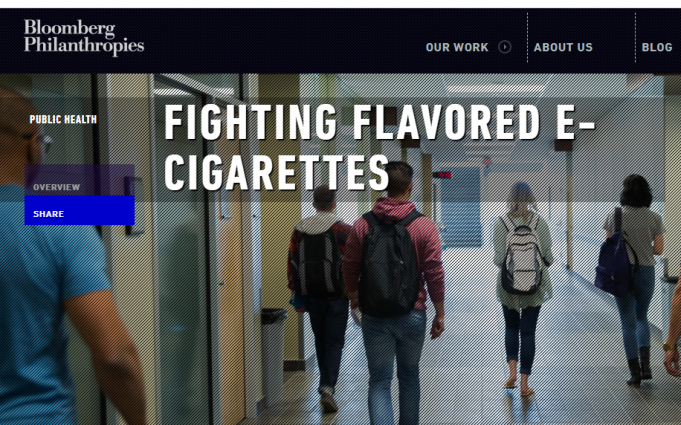“In 2019 The Union launched the Global Implementation Programme, which supports cities to effectively implement tobacco control laws, and we are a key partner in STOP, a global tobacco industry watchdog. Both projects are also funded by Bloomberg Philanthropies,” she added.
Clarisse Virgino, the Philippines’ representative to the Coalition of Asia Pacific Tobacco Harm Reduction Advocates (CAPHRA), had also spoken up, saying that the funds received from anti-vaping groups would jeopardize FDA’s treatment of tobacco harm reduction products such as e-cigarettes and HTPs.
“E-cigarettes and heated tobacco products are not pharmaceutical products and should not be regulated as such. What we need is a fair and risk-proportionate regulation that will encourage smokers to reduce their exposure to smoke which is the one that causes all these diseases.”
Calling for a deeper investigation
Subsequently last December, over 35 national consumer organizations voiced their concern about the funding, reiterating the need for an investigation into the matter. Now public health policy experts are calling for a deeper investigation, to determine whether the action violated both Philippine and United States laws.
Dr. Joel Nitzkin, a US physician who was cross-trained in public administration, said that the Philippines FDA’s acceptance of foreign funding from Bloomberg may be a possible breach of the 1987 Constitution and several laws. While Prof. David John Nutt of Imperial College of London, who chairs Drug Science, said it would be interesting to look into whether the funding violated any US charity regulations.
“We need to know how much money has been donated, both in dollars and as a percentage of the FDA budget. In addition, we need articulation from both donor and recipient ends as to the intended purpose of this donation. If this is as illicit as it appears to be, the next step would be to challenge this in the Philippine courts, and possibly in American courts,” said Nitzkin.
The overriding issue is the lack of transparency
Health policy consultant Scott Ballin, who previously worked on U.S. FDA tobacco regulations, said the issue is “troubling” as it involves the direct contribution of funding or money to a regulatory agency. “This is obviously a real concern. The overriding issue is indeed transparency and the requirements that a regulatory body follow guidelines in ensuring that policy-related decisions are made based on sound science and as part of a transparent regulatory process. If the (tobacco) industry had done this, there would have been outrage coming from public health entities as we well know.”
“Accepting money without disclosure and which might be an ethical if not a legal violation is something else. I don’t have or see enough information in the Philippine situation to see if the money was contributed for a specific purpose, etc. That said, the fact that this was done leaves a foul taste in the mouth,” he said.
Jordan Receives WHO Funding and Assistance to Help Combat Smoking Problem








